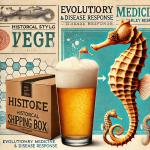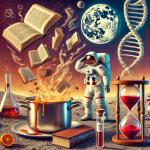During my discussion with Lars this week, we discussed the severity of this year’s flu season.
Other Science News
Until recently, a career in science communication did not inspire many people. Carl Sagan popularized it, but most attributed its popularity to Sagan's “once in a generation” mind and personality.
I’ve written in the past about Walter Midgley, the engineer behind leaded gasoline, and his mentor, Charles Kettering, who went on to help found Memorial Sloan Kettering.
I explained to Lars that this all started in 1986 when the White House published a white paper, The Coordinated Framework for Regulation of Biotechnology, which got the science right—regulation should be risk-based, not dictated by the me
Cardboard has been with us for so long. The pandemic brought cardboard to new highs as delivery became THE thing.
New Year’s resolutions are a ritual of bold promises that rarely stand the test of time.
Metaphors bridge us from the known to the less known. Some metaphors are more like highways than bridges, as in this piece by Austin Kleon on soup.
“Here’s the writer Charlie Fletcher:
Maligning the female reproductive system has long provided ammunition for male dominance.
I would like to think of myself as a visual person; certainly, having a good sense of spatial relationships helps as a surgeon, and as an amateur photographer, like the blind squirrel, I can occasionally find a nut.
One of my roles is to separate science fact from science fiction. I have found that it often takes longer to debunk bad science than I had anticipated. As is frequently the case, I am late to the party.












